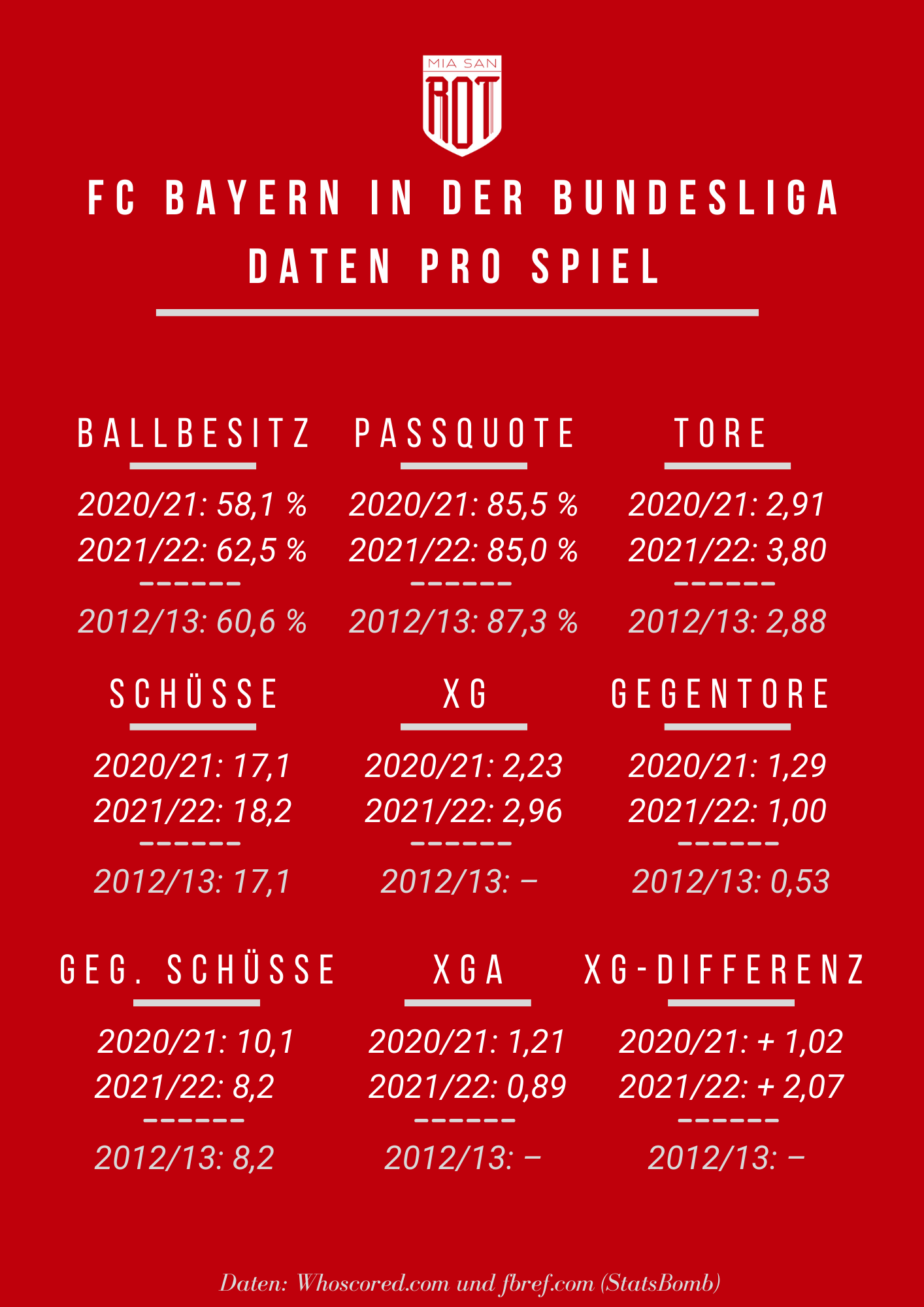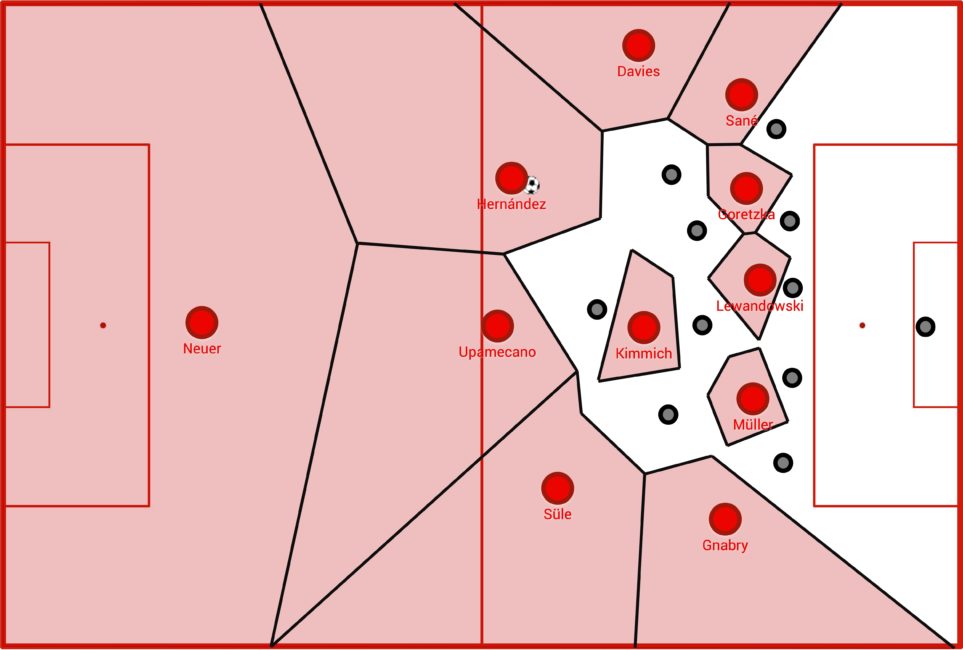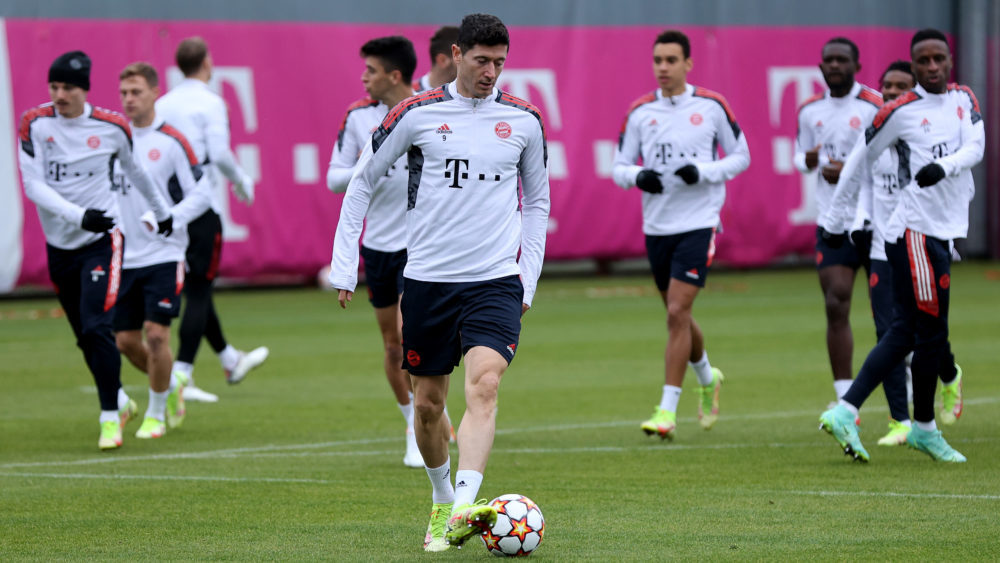Champions League MD 04 Preview: Benfica vs. Bayern
For a long time this season, everything went like clockwork for Bayern. Julian Nagelsmann himself sometimes seemed surprised at how quickly the players were able to implement his ideas. But then came the 0-5 against Gladbach last week and an at times rather wobbly win against Union Berlin whose result looked clearer than it actually was.
Especially the defence caught attention. Seven goals conceded in two games on the back of a season in which they conceded 44 goals in the league alone cannot be the ambition of the record champions, who throughout the last decade have always been defensively stable despite scoring plenty of goals.
If you are positioned so high and commit so many bodies forward as Bayern always do some observers conclude, you have to be prepared to concede a goal or two more at the back. Especially under Hansi Flick, it was obvious that the sometimes weak defensive performance was a direct result of the extremely offensive style of play.
But under Nagelsmann, the problem of the last two games is a different one – perhaps it is even what in computer science would be a ‘runtime exception’. Actually, it was impressive to see how Bayern operated until that thrashing by Gladbach. 60 goals in 14 competitive games – and only nine goals conceded, ie. an average result of 4.28 to 0.64. Through the last two games this relation has changed to 4.06 to 1.
Bayern’s Gretchen question: What about defence?
In ski jumping, the jury’s best and worst scores for a jump are discarded to make extreme outliers less significant. In football, of course, this makes less sense. But if we assume that the 12-0 home win against Bremer SV in the DFB-Pokal is and the 0-5 away to Gladbach were both strong outliers that are unlikely to be repeated, such a view might make sense for the purpose of an analysis. FC Bayern’s average result would then be a 3.79 to 0.79.
No matter how you slice it: The defence has stabilised under Julian Nagelsmann if you only look at the goals conceded – and that without sacrificing offensive spectacle. Further statistics confirm this impression:

All a question of attitude?
Before the match against Benfica, Nagelsmann said with regard to his team’s defensive behaviour: “It’s about going the last mile, about being active, about wanting to fight duels. We’ve been better at that in many phases of the season.” Better than against Gladbach and better than recently at Union Berlin, where the opponent was too often able to “push into our half without pressure” and cross.
A particularly good example of how not to do it is almost all of Gladbach’s five goals last week. But especially the second one:
The fact that the pressing did not work at the front is something that could be tolerated if the team were prepared to close the gaps at the back again quickly. Instead, however, the backward movement here is more than wanting. Leon Goretzka and also the attackers just trot back, while Dayot Upamecano is forced to move out and open up the space behind him. In total, a complete failure of the entire defence.
This scene shows how things can be different:
It is probably this willingness that Nagelsmann demands from his team working back, which most likely has also significantly improved Leroy Sané’s standing with many fans recently. The attacker still lacks consistency in his forward play, but because he no longer switches off after losing the ball but tries everything to win it back, he now regularly gets a round of applause.
Bayern have fallen back into old habits recently
So is it just a question of attitude? At least in part. Because Nagelsmann also made it clear after the historic defeat at Gladbach that the players should also ask which faults he made. We analysed some of the tactical causes in this video (in German):
Time and again, there was talk of “structure”. After victories, it was often said that the players had kept their structure well, while after more difficult games it was said that they had deviated too often from the desired structure. We analysed what that was all about here (also in German):
Both against Gladbach and Union, it was noticeable how isolated Joshua Kimmich was in midfield at times. During the week in the cup, it was Alphonso Davies and Benjamin Pavard who, as full-backs, made the game too wide and Leon Goretzka and Thomas Müller who, as number eights, operated too high. As a result, the distances became too large and when the ball was lost, Gladbach could immediately counter with space. Already in the 1-2 defeat against Frankfurt, there were such problems in some moments:

Problems in build-up play
Another problem against Gladbach was the 2-3 formation in build-up play. The fact that the three players in front of the two centre-backs were too wide made gegenpressing more difficult, but the fact that only two players were in the first line of defence against the high pressing Gladbach players increased the pressure enormously and virtually forced bad decisions.
Against Union Berlin, it seemed as if they deliberately wanted to act more cautiously. Stanišić pushed forward into midfield less often, which led – or was supposed to lead – to a (sometimes shifted) 3-2 formation from time to time. Supposed to because in this game, too, the two number eights provided too little support. Corentin Tolisso and Thomas Müller played quite high and thus again split the team apart vertically.
In principle, Nagelsmann wants to “waste” as few players as possible in building up from the back because he wants to create numerical superiority in the final third and in midfield. For this, however, Bayern also need a suitable depth distribution – on the one hand, in order to be able to push forward while exerting pressure (this hardly worked at all against Gladbach) and, on the other hand, in order to immediately get into a well-structured gegenpressing when they lose the ball. This is where they have had problems recently, because they fell into old habits: If the opponent makes the game tight, Bayern make it wide. Nagelsmann, however, wants the defensive and midfield players in particular not to make the game unnecessarily wide (=> cf. “Mia san Rotstift” episode 9 above).
Head already in Freiburg?
Before the match against Benfica, Nagelsmann publicly mused about rotation. The odd “frequently used player” could possibly get a break. The table situation in the group allows him to do so: five points ahead of Benfica, even six ahead of Barcelona. A draw this Tuesday evening and the Munich team will be safely through to the last 16, a win and finishing in first place is virtually guaranteed.
Apart from all the tactical problems Bayern have had recently, the players when all is said and done are still human beings who struggle with everyday issues such as fatigue or other factors. This is perhaps where Nagelsmann is most likely to face criticism. Rotation has not been all that en vogue at Bayern in recent weeks.
In view of the very short preparation, it is certainly difficult to already start rotating this early in the season. Rhythm so far has probably been a greater priority for to the coaching team. Now, however, with the calendar entering its first congested period, it will also be important to economise on strength. The fact that the Champions League, of all places, would be the one arena lending itself best to this is a result of the strong start to the Nagelsmann era.
The fact that the coach points out that he is already putting half an eye on the difficult game against Freiburg on Saturday is in turn a great compliment to the still unbeaten team from the Breisgau. And a sign that Bayern have understood the shot across the bow at Gladbach. Because there are exciting weeks ahead in the Bundesliga.









